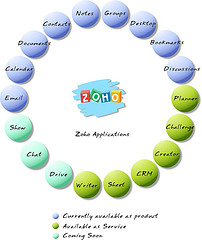The TechCrunch party at August Capital will likely be the most lavish one – just look at the impressive list of party sponsors (see logos at the bottom). There are 760 names on the attendance list, and yours truly holds the last position on the wiki – hey, I am a rock-solid Z-lister forever:-)
Mike Arrington put up the last two tickets for bidding on eBay, and he will donate all proceeds to the Entrepreneurs Foundation, a Bay Area non-profit organization.
And now the big news: there may potentially be one more ticket to win – right here. How high do you think bidding will go? Fill out the form below, and you can be the winner. (I’ve just realized that the script may not come through in a feed, so please click back to my post to access the form). The guess closest to winning bid amount will be awarded by:
- A drink and photo with Mike Arrington if you are already on the attendee list (hey, there may be a kiss, too, but I can’t commit Mike to that
 )
) - The very last ticket, if you are not yet on the list.
Note: I will be closing the poll at 10am on the day of the party, The eBay bid will close at 4:15pm. Winner will be published and notified by email as soon as payment is verified. (i.e. the bid has to be real). Update: The poll is now closed. The winner of the free
ticket is David Gobaud from Stanford, who guessed $537, and the winning
eBay bid was $501. Congrat’s and see you there! ![]()
Proof that this is for real:

Tags: Charity, Entrepreneurs Foundation, TechCrunch, TechCrunch Party, eBay, zoho, zoho creator, techcrunch7



 (Updated)
(Updated)
Recent Comments